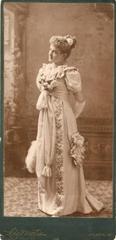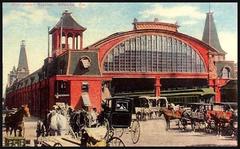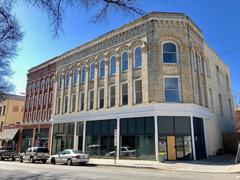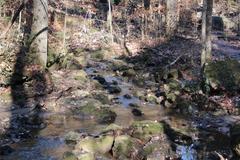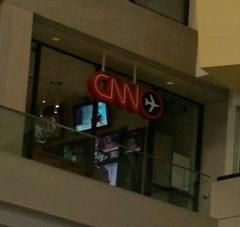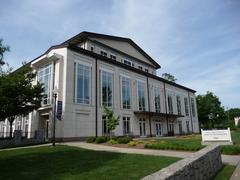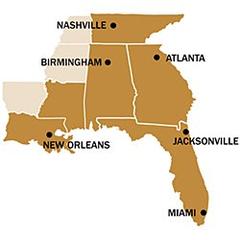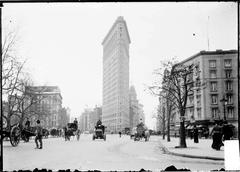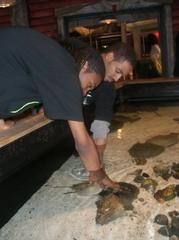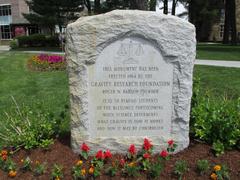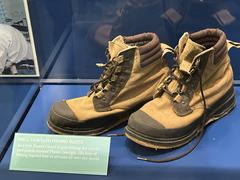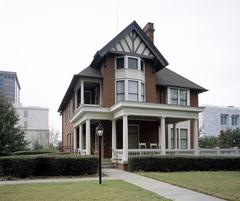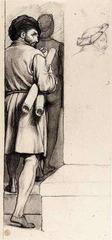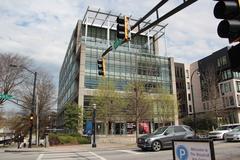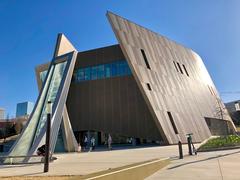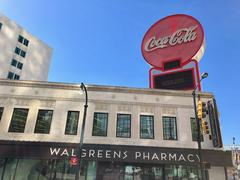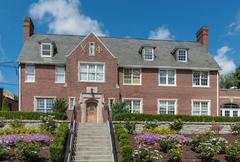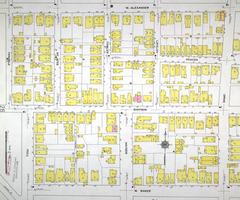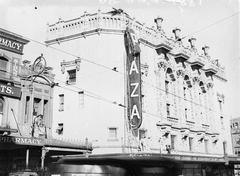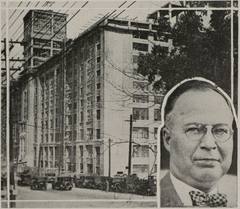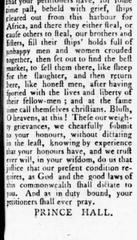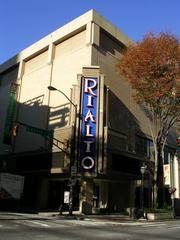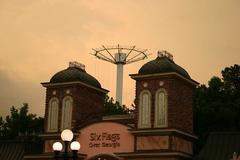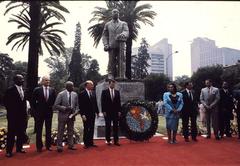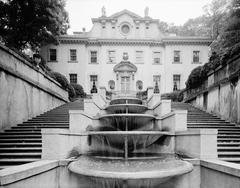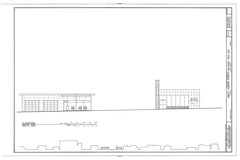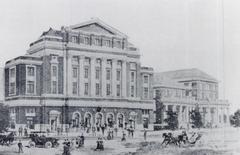
Clark Atlanta University Visiting Guide: Historical Overview, Hours, Tickets & Atlanta Attractions
Date: 03/07/2025
Introduction: Clark Atlanta University’s Legacy and Significance
Clark Atlanta University (CAU), located in the heart of Atlanta, Georgia, stands as a cornerstone of African American higher education and cultural heritage. Born from the 1988 merger of two influential HBCUs—Atlanta University (founded in 1865) and Clark College (founded in 1869)—CAU carries forward a powerful legacy of academic excellence, social justice, and community empowerment. As the largest member of the Atlanta University Center Consortium (AUC), CAU offers a dynamic campus experience steeped in history and surrounded by Atlanta’s most significant cultural landmarks.
Whether you are a prospective student, a history buff, or a visitor keen on exploring Atlanta’s Black heritage, this comprehensive guide covers everything you need to know about visiting CAU—including hours, tickets, guided tours, accessibility, and nearby attractions.
For the latest updates on visiting hours, events, and campus guidelines, always refer to the Clark Atlanta University Official Website, as well as resources like the National Park Service – Martin Luther King, Jr. National Historical Park and Explore Georgia.
Table of Contents
- Historical Overview
- Visiting Clark Atlanta University
- Nearby Atlanta Historical Sites and Attractions
- Frequently Asked Questions (FAQ)
- Visual Highlights of Clark Atlanta University
- Plan Your Visit: Tips and Recommendations
- Conclusion and Call to Action
- Sources
Historical Overview
Founding and Early Development
Clark Atlanta University’s roots reach back to two trailblazing HBCUs:
- Atlanta University (est. 1865): Founded by the American Missionary Association and Freedmen’s Bureau, Atlanta University was the South’s first HBCU and became the first in the United States to award graduate degrees to African Americans. Its initial classes were held in a damaged church, highlighting the spirit of resilience and hope that defined the post-Civil War era (CAU Institutional History).
- Clark College (est. 1869): Established through the Methodist Episcopal Church and named after Bishop Davis W. Clark, the college emphasized liberal arts and theological education for newly emancipated African Americans. Clark College awarded its first degree in 1880 and established the theology department that would become the renowned Gammon Theological Seminary.
Growth and Atlanta University Center Consortium
By the early 20th century, Atlanta was a hub for Black education, home to institutions like Morehouse, Spelman, Morris Brown, and Gammon. In 1929, the Atlanta University Affiliation formalized collaboration, with Atlanta University serving as the graduate school and Morehouse and Spelman focusing on undergraduate education. This evolved into the Atlanta University Center (AUC) Consortium—the largest and oldest consortium of HBCUs in the world (Discover Atlanta).
The AUC enabled resource sharing, cross-registration, and the creation of shared facilities like the Robert W. Woodruff Library, elevating the academic profile and cultural influence of its member institutions.
Academic and Cultural Achievements
- Pioneering Research: Atlanta University established the first sociological research laboratory in the U.S. (Atlanta Sociological Laboratory, 1895) and hired W.E.B. Du Bois, who conducted groundbreaking studies on race and launched the influential Atlanta Studies on Negro Sociology (American Sociological Association).
- Artistic Heritage: The CAU Art Museum preserves the legacy of artists like Hale Woodruff, whose “Art of the Negro” murals are campus treasures. The museum, among the first fine arts collections at an HBCU in the South, also features works by Romare Bearden and Elizabeth Catlett.
- Faculty and Alumni: CAU and its predecessors educated and employed luminaries such as Du Bois, poets Paul Laurence Dunbar and Langston Hughes, and cultural icons like Alvin Ailey and Duke Ellington. The university’s alumni are leaders in business, politics, education, and the arts (CAU About Us).
The 1988 Merger and Modern Era
On July 1, 1988, Atlanta University and Clark College merged, preserving their individual legacies while forming a vibrant, research-focused university. Today, CAU is classified as an “R2: Doctoral Universities – High research activity,” offering 34 bachelor’s, 25 master’s, 8 doctoral, and 12 specialist programs. The 126-acre campus features 37 buildings, including the historic Gaines Hall (built 1869), and hosts a diverse student body of over 4,000 (U.S. History).
Recent initiatives, such as a $250 million capital campaign and historic gifts like MacKenzie Scott’s $15 million donation, ensure CAU’s ongoing growth and impact (Innovationsoftheworld.com).
Visiting Clark Atlanta University
Visiting Hours and Admission
- Campus Hours: Monday–Friday, 8:00 AM to 6:00 PM. Weekend access is typically by appointment or during special campus events.
- CAU Art Museum: Open Tuesday–Saturday, 10:00 AM to 4:00 PM. Admission is free; donations are encouraged.
- Other Facilities: Check the official website for access to libraries, athletic events, and special exhibitions.
Some special events or athletic games may require tickets or advance registration. For the most current details, visit the CAU University Life page.
Guided Tours and Special Events
- Campus Tours: Guided tours are available for prospective students, families, and visitors, typically lasting about 60 minutes and covering major landmarks, academic buildings, residence halls, and the art museum. Tours should be booked in advance through the CAU Admissions Office.
- Group Visits: Schools or community groups should arrange visits at least 30 days ahead for customized itineraries.
- Special Events: The university hosts concerts, art exhibitions, lectures, and festivals open to the public. Check the CAU Events Calendar for upcoming opportunities.
Accessibility
CAU is committed to ensuring accessibility for all visitors. The campus features accessible paths, ramps, elevators, and restrooms. Visitors needing specific accommodations should contact the university’s accessibility services before arrival for assistance (CAU University Life).
Transportation and Parking
- Public Transit: CAU is accessible via Atlanta’s MARTA system. The Vine City, Ashby, and West End stations are each within a 10–15 minute walk of campus. Multiple bus lines also serve the area.
- Parking: Visitor parking is available on campus. Check signage for designated lots and potential fees, especially during events.
- Rideshare/Biking: Uber, Lyft, and Atlanta’s bike/scooter-share programs provide additional options.
Nearby Atlanta Historical Sites and Attractions
Enhance your visit to CAU by exploring nearby landmarks:
- Atlanta University Center Consortium: Visit historic neighboring campuses—Morehouse College, Spelman College, and Morehouse School of Medicine.
- Martin Luther King, Jr. National Historical Park: Tour Dr. King’s childhood home, Ebenezer Baptist Church, and The King Center (NPS).
- High Museum of Art: Atlanta’s leading art museum, just a short drive from campus.
- National Center for Civil and Human Rights: An interactive museum focused on civil rights history.
- Historic West End: Explore Victorian architecture and Atlanta’s Black cultural heritage.
- Hammonds House Museum: Celebrating African American fine art (Hammonds House Museum).
- Centennial Olympic Park & Fox Theatre: Iconic downtown attractions, easily accessible from CAU.
Find more recommendations at Discover Atlanta.
Frequently Asked Questions (FAQ)
Q: What are Clark Atlanta University’s visiting hours?
A: Monday–Friday, 8:00 AM to 6:00 PM for campus; CAU Art Museum is open Tuesday–Saturday, 10:00 AM to 4:00 PM.
Q: Is there an admission fee?
A: General campus visits and the art museum are free; select events may require tickets.
Q: How do I schedule a tour?
A: Book through the CAU Admissions Office; group tours require advance notice.
Q: Is CAU accessible for visitors with disabilities?
A: Yes, the campus offers accessible facilities. Contact accessibility services for specific needs.
Q: Where can I park?
A: Visitor parking is available on campus; check signage and the university website for details.
Q: What are nearby attractions?
A: Notable sites include the Martin Luther King, Jr. National Historical Park, High Museum of Art, and Hammonds House Museum.
Visual Highlights of Clark Atlanta University
The CAU Art Museum, featuring the “Art of the Negro” murals and African American art collections.
Statue of W.E.B. Du Bois, honoring the scholar’s transformative impact on CAU and American intellectual life.
Gaines Hall, built in 1869, is a landmark of American coeducational history.
(Images are optimized with descriptive alt text such as “Clark Atlanta University visiting hours,” “CAU Art Museum,” and “Clark Atlanta University historic buildings.“)
Plan Your Visit: Tips and Recommendations
- Plan Ahead: Check CAU’s website for the latest updates on hours, events, and campus access.
- Tour Scheduling: Book guided tours in advance, especially during busy periods like Homecoming or special exhibitions.
- Transportation: Use MARTA for convenient, affordable access; visitor parking is available for those driving.
- Campus Navigation: Download interactive campus maps and wear comfortable shoes.
- Nearby Dining: Explore Black-owned restaurants and diverse cuisine in the West End and nearby downtown Atlanta.
- Stay Connected: CAU provides campus-wide Wi-Fi and tech resources for visitors.
- Accessibility: Request accommodations in advance if needed.
- Events: Coordinate your visit with annual traditions like Homecoming, step shows, or cultural festivals for a richer experience.
- Health & Safety: Campus security operates 24/7. Observe posted safety and health protocols.
Conclusion and Call to Action
A visit to Clark Atlanta University offers a profound journey through the legacy of African American education, culture, and resilience. As both a living monument to progress and a thriving center of academic innovation, CAU welcomes all who seek to learn, connect, and be inspired.
To plan your visit, check the Clark Atlanta University Official Website for the most current information on campus hours, special events, and visitor guidelines. Download the Audiala app for self-guided tours and local tips, and follow CAU on social media for updates and stories. Experience the enduring impact of CAU—where history, culture, and community come alive.
Sources
- Clark Atlanta University Official Website
- National Park Service – Martin Luther King, Jr. National Historical Park
- Georgia Department of Economic Development – Explore Georgia
- Discover Atlanta – Clark Atlanta University and Atlanta Historical Sites
- Innovationsoftheworld.com – Clark Atlanta University: Soaring to New Heights of Academic Excellence
- U.S. History – Clark Atlanta University Overview
- American Sociological Association – History of the Atlanta Sociological Laboratory












